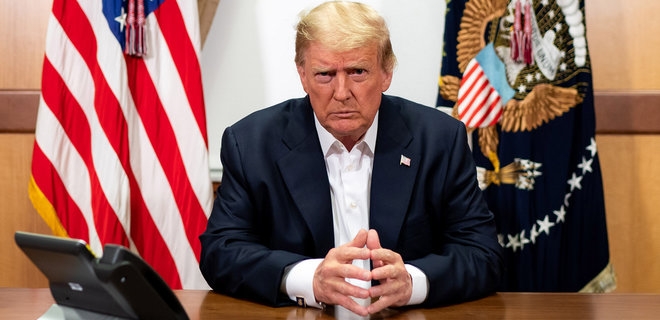The new US administration has not yet taken office, but the first statements of Trump collapsed the quotations

President Trump has promised to impose additional tariffs of 10% on goods from China and 25% on goods from Canada and Mexico, while previously he proposed raising tariffs to 60% on Chinese goods and 10-20% on all others. If this happens, the average tariff in the US will reach almost 17.7%, which will be the highest since 1934. Economists believe it will increase inflation, worsen relations with China and change global supply chains.
Consequences of Trump's first term
During his first presidency, Trump imposed tariffs on $380 billion worth of goods from China. The Biden administration kept them and this year increased them to goods worth another $18 billion. In October, the European Union also imposed a 45% tariff on electric cars from China, which threatened to retaliate.
Before the 2024 election, Trump argued that the import tariffs would bring in billions in revenue, boost U.S. manufacturing and allow the country to extract concessions from competitors and trade allies. His opponent, Haris, criticized the tariff increase because it hurts consumers.
The tariffs could boost employment and attract investment as companies try to move factories to the US to avoid the tariffs. At the same time, retaliatory tariffs lead to losses in other sectors of the economy and job losses. Experts at the National Bureau of Economic Research believe that Trump's 2018-2019 tariffs did not increase the number of jobs in protected industries, but caused losses to workers in other sectors, including agriculture.
The effect of Trump's first tariffs is difficult to gauge, as they were followed by the Covid pandemic, which has altered economic activity and supply chains. Analysts believe that they will increase the consumer price index by 0.1%, the indicator of business investment expenditures by 0.4%, the average annual household tax bill by $625, reduce GDP in the long run by 0.2% and lead to liquidation 142 thousand jobs.
Why is Trump raising tariffs?
Trump sees the new tariffs as necessary to stem the flow of illegal migrants and drug trafficking across the border with Mexico and Canada, and accuses China of reneging on promises to introduce the death penalty for fentanyl traffickers. "Until they stop, we will charge China an additional 10% tariff in addition to other taxes on their products, and 25% on goods from Mexico and Canada," Trump said.
Such threats run counter to expectations of a softening of trade policy during the second term. Against their background, the Canadian dollar fell to a 4-year low, the Mexican peso - to a 2-year low. The exchange rate of the Chinese yuan also fell. And Canada announced cooperation with US law enforcement officers to stop Chinese drug trafficking.
Return to the 1930s
Economists compare Trump's plans to the Smoot-Hawley Act of 1930, which raised tariffs, led to the collapse of trade and deepened the Great Depression. After the Second World War, countries abandoned the system of "destroying neighbors" and created a new one based on non-discriminatory tariffs, which is represented by the WTO. However, Trump could destroy it, as other countries will also raise tariffs, deepening the business crisis.
According to analysts, the volume of trade between the US and China will fall by 70% compared to the level already reduced after the Trump tariffs in 2018-2019. Tariffs will not reduce the US trade deficit, but they will change the flow of goods from other countries. Deporting millions of migrants from the US could tear apart families and destroy businesses.
US agricultural associations want Trump to avoid mass deportations for their sector because it could disrupt food supply chains. Almost half of the more than 2 million agricultural workers and a significant portion of the workers in the US dairy and meat industries are migrants and do not have legal status, according to data from the US.


